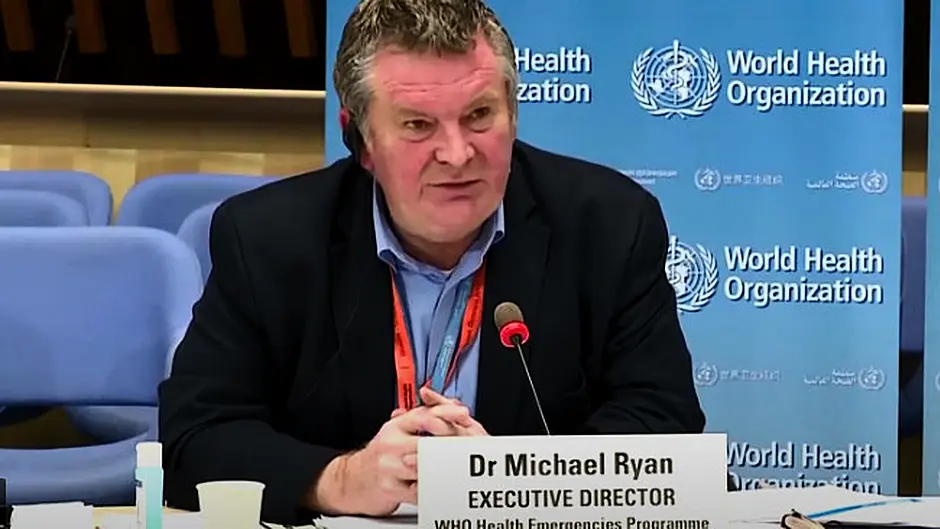Mandatory hotel quarantine is being introduced this week for incoming passengers from 33 countries. But that won’t solve our problem, because community transmission is the issue now, writes Harry McGee
ANYONE who has managed to get to the summit of the world’s highest mountain, Everest, will tell you the last 100 metres is the hardest part.
You can see the top just ahead of you but you are in the death zone with deep freeze conditions.
You are exhausted, sleep-deprived, hardly able to breathe, even though you have an oxygen bottle. That last few metres becomes a deathly struggle.
It seems we are at the same stage with the coronavirus pandemic.
We are nearly there – we can see the summit – but it is seems such a difficult, slog of attrition at the moment.
The third wave of Covid-19 has been really hard for everybody.
We have been in effective lockdown since January although, despite the fines, far more people are ignoring rules such as the 5km rule (which is impossible to do anyway if you are living in the country, or on the coast.)
It has been very difficult for everyone.
The new variant of Covid-19 from the UK (B117, or the ‘Kent Variant) has been deadly. It has counted for scores of thousands of cases and thousands of deaths.
Those who wanted to go back to work in hospitality, or in other furloughed trades, had their hopes dashed. There is a large portion of the Irish adult population who have not worked for a year, or whose businesses have been shuttered.
And then there are the other consequences that we have not really begun to measure.
What impact will Covid-19 have on other health services? Or on people’s mental health?
Or on children who have not been able to do outdoor activities?
Or on young people whose education has been impacted and who have been deprived of social contact?
Now, we are within sight of a future.
Sure, there have been delays with supplies, but the numbers of vaccinations have been increasing.
At the start of this week, 650,000 people had got their first shot and 175,526 had got their second jab.
It’s nothing compared to the UK, where almost 30 million (over half the population) have been vaccinated. Nonetheless, it’s getting there, albeit slowly.
You take everything you hear about the vaccine programme with a touch of salt.
Manufacturers have struggled badly to keep up with demand. That is especially so for Astra-Zeneca, which has failed to meet its obligations and targets with the European Union.
We have also seen vaccine nationalism rear its head. That manifested itself over the weekend when the EU threatened to ban any exports of Astra-Zeneca from its jurisdiction to either the UK or the US over that failure.
I wonder is that a wise move?
You can see the impatience and mounting anger in some European countries about delays. And the EU Commission has made some big blunders.
The alternative, however, to Brussels handling the distribution of vaccine is a free-for-all – and the big powerful countries would have got the bulk of the produce, with smaller countries left behind in the queue.
Dr Mike Ryan of the World Health Organisation was speaking powerfully about that last month.
He said that if younger people in richer countries with no underlying conditions were all vaccinated, while people in poorer countries who really needed the vaccine were being deprived of it, then the history books needed to record that. He was talking of vaccine injustice.
Just about every country has been deaf to his words – there’s a race in every State I know of to vaccinate the entire population.
The authorities here tell us there is robust ambition for rollout in Q2 (that’s April to June). That depends on new vaccines – like Johnson & Johnson and Novavax – meeting production targets when they become available in the EU. Don’t bet the house on that.
The hope is that all over-70s will have had their first and second jab by the end of June. If that is achieved, that will be a massive win, given that well over 90% of those who have died from, and with, Covid-19 in Ireland have been in that oldest age group.
There are small shafts of light to be seen. Nursing Homes are now open to two visitors per week, which is fantastic.
Mandatory hotel quarantine is also being introduced this week for incoming passengers from 33 countries. However, that ain’t going to solve the problem. Our problem with Covid-19 at the moment is community transmission, not people coming in.
From April 5th, there will also be some easing of restrictions.
The 5km from home limit will go – but it remains to be seen if people will be allowed travel to county boundaries.
Outdoor activities will be allowed (and team training in bubbles for children under 18) and I presume that includes golf and tennis.
Some, if not all, construction will return. It looks like home building will get the nod first. Beyond that, though, very little.
It’s incremental, and some people would wish for more, but at least it’s better than what we have at the moment.
The reason why there is such caution is the B117 variant.
If we looked at the pattern during the first wave last year, the numbers shot up and then fell steadily.
This time around it has been different. After Christmas the numbers escalated alarmingly and the fall since then has been stubbornly – and frustratingly – slow.
It was a bit of a jolt last Sunday to see the numbers above 750 for the first time since February, and the five-day average number of cases up by about 15% since March 5th.
Perhaps the recent high numbers are just a blip and the figures will continue to fall. But it is a worry and does show you how difficult it is to deal with B117.
You can see how it has impacted right across Europe with big outbreaks in Germany and Poland right now, as well as countries like Finland – previously with amongst the lowest numbers in Europe – now beginning to feel the pinch.
Lurking in the wings are the Brazilian and South African variants (the latter which seems more resistant to vaccines). With improved weather too, you are going to see more blatant breaches of lockdowns and restrictions, which might lead to increased numbers in the short term.
If we are to have any summer, it will be June or July.
At this moment in time – unless there is a transformation of the situation between now and July – there will be no foreign travel allowed this summer.
The past year has had a huge toll. Many families lost love ones to this pernicious disease.
The restrictions have been never-ending – people are getting fatigued now of it all.
Those who have lost their jobs and their livelihoods have also had a torrid year – with many facing an uncertain future.
But hopefully, despite all that, by the end of 2021, we will finally ascend that last 100 metres and stand on top of the summit – hopefully with a clear blue skies view into the future!
• Harry McGee is political correspondent with The Irish Times and on Twitter @harrymcgee







